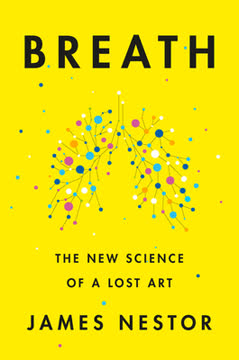Key Takeaways
1. Medicine: A Calling of Passion, Sacrifice, and Service.
I think it's important to know with 100 percent certainty that you want to be a physician and that you want to help patients.
More than a job. Becoming a doctor is a profound commitment, often described as a calling rather than just a career. It requires deep motivation, a desire to make a difference in people's lives, and a willingness to face significant challenges. Many are inspired by personal experiences, role models, or a fascination with science and the human body.
Sacrifice is inherent. The path involves many years of rigorous training (college, medical school, residency, potentially fellowship), substantial financial debt, and demanding hours that impact personal and family life. Balancing work and life requires understanding partners, supportive networks, and effective time management skills.
Rewards are immense. Despite the sacrifices, the medical profession offers unique satisfactions. Physicians gain financial stability, intellectual stimulation from a constantly evolving field, and the honor of a respected profession. Most importantly, the ability to help and heal others provides deep personal fulfillment.
2. Beyond Grades: Cultivate Experience, Mentorship, and Resilience.
You will not only be evaluated on your academic achievements, but also on the basis of your ability to successfully lead a balanced life.
Holistic evaluation. Medical school admissions committees look beyond academic metrics like GPA and MCAT scores. They seek well-rounded individuals who demonstrate commitment, dependability, and a genuine understanding of the medical field. Extracurricular activities, both medical and non-medical, are crucial.
Gain real experience. Volunteering or working in healthcare settings (clinics, hospitals, physician offices) is essential to confirm your interest and gain insight into patient care, ethical issues, and the healthcare system. Shadowing is a start, but actively seeking responsibilities is more impactful.
Mentors are vital. Finding advisors and teachers who can guide, encourage, and advocate for you is invaluable throughout your journey. Mentors can provide insights, connections, and support, helping you navigate challenges and shape your career path. Building a strong support system from family, friends, and peers is also key.
3. Navigating the Gauntlet: Mastering the MCAT and Application Process.
Although students can take the MCAT more than one time, it is best to approach the exam as if you will take it only once.
Standardized hurdle. The Medical College Admission Test (MCAT) is a critical component of the application, testing science knowledge, critical analysis, and problem-solving. Thorough preparation through coursework review, study groups, and practice tests is highly recommended.
Complex application. The primary application (AMCAS, TMDSAS, AACOMAS) is lengthy and requires careful planning and timely submission, usually starting in the spring of your junior year. Secondary applications from individual schools add further essays and requirements.
Showcase yourself. Beyond scores and grades, the application includes a personal essay, letters of recommendation, and descriptions of your experiences.
- Essay: A powerful opportunity to convey your passion, inspiration, and future goals. Be personal, honest, and well-written.
- Letters: Choose mentors or professors who know you well and can speak to your character, work ethic, and suitability for medicine.
- Experiences: Detail work, volunteer, research, and extracurricular activities, focusing on what you learned and how they shaped you.
Interviews are a chance to demonstrate maturity, professionalism, and genuine interest, often involving questions about healthcare issues, ethics, and your motivations. Researching schools beforehand is crucial.
4. Medical School: Intense Learning, Clinical Immersion, and Self-Discovery.
The actual material is not very hard to learn," he said. "It’s the sheer volume that makes it almost impossible.
Rigorous curriculum. The typical four-year U.S. medical school program starts with preclinical years focused on basic sciences (anatomy, histology, etc.) and foundational clinical skills (history taking, physical exams). The volume of information is immense, requiring effective study strategies and discipline.
Clinical rotations. The latter two years involve clinical sciences and rotations through core specialties (internal medicine, pediatrics, surgery, etc.) in hospital and outpatient settings. This is where theoretical knowledge is applied, and students gain hands-on experience under supervision.
Emotional challenges. Medical school is intellectually demanding but also emotionally taxing. Students confront illness, death, and stressful situations, learning to manage their emotions while developing empathy and communication skills. Balancing the demands of school with personal life is an ongoing challenge.
5. Financing Your Dream: Strategies for Managing Significant Debt.
As scary as debt is, doing what you find meaningful matters much more in the long run than the finances.
High cost of entry. Medical education is expensive, with tuition, fees, and living expenses accumulating significant debt, often averaging over $190,000 upon graduation. This financial burden is a major consideration for aspiring doctors.
Explore financial aid. Most students rely on financial aid, available through federal, state, school, and private sources. Options include:
- Gift Aid: Scholarships, grants, and awards based on need, merit, or talent (FAFSA is key for need-based aid).
- Loans: Federal subsidized (interest doesn't accrue in school) and unsubsidized loans, parent loans, and private loans (use caution with variable rates).
- Work Aid: School-based programs allowing students to earn income.
Alternative funding. Consider programs like the Health Professions Scholarship Program (HPSP) offered by the U.S. military, which covers education costs in exchange for service commitment. International students may face more limited aid options.
Seek advice from premedical advisors and financial aid officers early to develop a plan and understand the long-term implications of debt.
6. Residency: The Demanding Path to Specialization and Skill.
My life revolved around my work and call schedule.
Post-graduate training. After medical school, physicians complete residency, a 3-7+ year period of intensive, supervised training in a chosen specialty. This is essential for acquiring in-depth knowledge, technical skills, and becoming board-certified.
Rigorous schedule. Residency is known for long hours, frequent on-call duties, and high stress levels. While guidelines have evolved to limit work hours and increase supervision, it remains a demanding phase of training.
The Match. Students apply to residency programs (ERAS) and interview, then rank their choices. Programs also rank applicants. A computer algorithm (NRMP Match) pairs students with programs, with results announced on "Match Day." This process is highly competitive.
Despite the challenges, residency is a period of significant growth, increased responsibility, and the development of confidence as physicians transition from student to practitioner.
7. Practice: Balancing Science, Art, Business, and Ethics.
Unlike other professions, medicine involves a balance of science, art, and business.
Multifaceted role. Practicing medicine requires scientific knowledge, clinical skills (the "art"), and navigating the business aspects of healthcare (insurance, billing, practice management). Physicians must continuously update their knowledge and adapt to changes in the healthcare system.
Ethical dilemmas. Doctors constantly face complex ethical and moral decisions, from end-of-life care and patient autonomy to resource allocation and navigating cultural/religious beliefs. Strong personal ethics and understanding legal obligations are crucial.
Patient relationships. The doctor-patient relationship is central. Effective communication, listening skills, and empathy are vital, especially with increasingly informed patients who access information online. Building trust and involving patients in their care is key.
The Hippocratic Oath, in its modern form, still serves as a guide for ethical conduct, emphasizing patient well-being, confidentiality, and professional integrity.
8. The Evolving Landscape: Adapting to Technology and Healthcare Changes.
The only thing we can know with certainty is that there will be constant discovery and change.
Rapid advancements. Medicine is a dynamic field driven by continuous discovery and technological innovation. Advances in genetics, imaging (radiology), minimally invasive surgery, and pharmaceuticals constantly change diagnosis and treatment.
Technology integration. Health information technology (electronic medical records, telemedicine) is transforming practice, aiming to improve care quality, safety, and access, though challenges like system integration and privacy remain.
Shifting focus. Public health priorities are evolving, with increased emphasis on prevention (lifestyle diseases like obesity), emergency preparedness, eliminating health disparities, and improving health literacy.
Physicians must be lifelong learners, willing to embrace new technologies, adapt to changing healthcare models (like the patient-centered medical home), and contribute to improving community health.
9. Diverse Paths: Exploring the Vast Spectrum of Medical Specialties.
The field is vast and there are many opportunities for physicians other than primary care medicine.
Specialization options. After residency, physicians can specialize in numerous fields recognized by boards like the ABMS. These specialties offer vastly different daily routines, patient interactions, technical demands, and lifestyles.
Varied experiences. Interviews with specialists highlight this diversity:
- Cardiology: High-tech interventions vs. long-term patient relationships and prevention.
- Surgery: Technical skill, high stakes, immediate results vs. managing complications.
- Pathology: Detective work in the lab, guiding treatment without direct patient contact.
- Psychiatry: Understanding the human mind, navigating complex emotional issues.
- Pediatrics: Caring for children, building relationships with families, focusing on prevention.
Choosing a specialty involves considering your personality, interests, desired lifestyle, tolerance for stress and uncertainty, and the type of patient interaction you seek.
10. The Human Connection: Finding Profound Reward in Patient Care.
Having patients come back feeling better and knowing that you’re helping them is a wonderful thing.
Core satisfaction. Despite the administrative burdens, long hours, and emotional toll, the most consistently cited reward in medicine is the ability to positively impact patients' lives. Witnessing recovery, providing comfort, and building relationships are deeply gratifying.
Making a difference. Whether it's diagnosing a rare condition, performing a life-saving procedure, managing a chronic illness, or simply offering reassurance, physicians have countless opportunities to make a tangible difference. These moments often become the most memorable and motivating aspects of the career.
Beyond treatment. Patient care extends beyond medical interventions. It involves listening, empathizing, educating, and supporting individuals and families through vulnerable times. This human connection is a unique privilege of the profession.
11. The Future: Genetics, Prevention, and Global Health Challenges.
Our goals for the future should be that every individual will have access to good health care, and that we—as providers—will continue to seek knowledge and answers to improve the health of the community.
Genomic medicine. Advances in genetics, including genome sequencing and understanding copy number variations, are revolutionizing diagnosis, personalized treatment, and disease prediction, raising new ethical considerations regarding privacy and access.
Focus on prevention. Addressing lifestyle diseases (obesity, related conditions) and promoting healthy habits are increasingly critical public health goals. Physicians play a key role in preventive medicine at both individual and community levels.
Global health. Infectious diseases, health disparities, and access to care remain significant challenges globally. The ability to share medical knowledge rapidly across borders is crucial for addressing these issues.
The future of medicine promises continued discovery and the potential for greater impact, requiring physicians who are adaptable, ethically minded, and committed to improving health for all.
Last updated:
Review Summary
On Becoming a Doctor receives mixed reviews, with an average rating of 3.64/5. Readers appreciate its comprehensive overview of the medical profession, from application to practice, finding it helpful for aspiring doctors. The book's interviews with physicians in various specialties are particularly valued. However, some criticize its lack of depth and outdated information. While praised for its concise writing and inspiring content, others find it basic and boring. Overall, it's recommended as a starting point for those considering a medical career, though additional research may be necessary.
Similar Books
Download PDF
Download EPUB
.epub digital book format is ideal for reading ebooks on phones, tablets, and e-readers.











